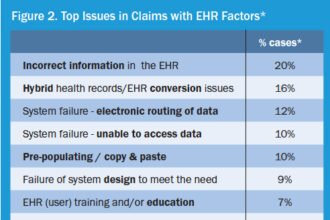March 13, 2014
March 13, 2014
This month’s supplement edition of Medical Care is devoted to a critically important topic facing the US healthcare system: how to better care for the growing number of people suffering from multiple chronic conditions (MCC). Almost $2 out of every $3 spent on healthcare is directed toward care for the 27 percent of Americans with multiple chronic conditions.
 Medical Care highlights the challenges we face, including the daunting gaps in understanding how to help patients improve and maintain their health. The researchers also suggest some ways forward to building the evidence base needed and how to bridge the many evidence gaps in helping people with MCC.
Medical Care highlights the challenges we face, including the daunting gaps in understanding how to help patients improve and maintain their health. The researchers also suggest some ways forward to building the evidence base needed and how to bridge the many evidence gaps in helping people with MCC.
The authors, researchers from the Multiple Chronic Conditions (MCC) Research Network funded by the Agency for Healthcare Research and Quality (AHRQ), tackle different aspects of the challenges, but common themes are apparent. One issue that persists and is particularly relevant to current Medicare reform debates is the lack of meaningful measures to evaluate the quality of care for the MCC population. As many as 65 percent of the Medicare population has multiple chronic conditions and more than half has five or more chronic conditions. Though Medicare reform is needed, not being able to evaluate quality effectively for the majority of beneficiaries is a critical gap in the pursuit of reforms that benefit those served.
The Center for Medicare and Medicaid Innovation (CMMI) is running several new care financing and delivery models for Medicare, and proposing more. Whether Accountable Care Organizations, bundled payment reforms, episode-based payment reforms, or others, all rely on the maintenance or improvement in the quality of care as a safeguard for patients. Judging the maintenance or improvement in quality depends on the strength of the measures themselves, but as the AHRQ researchers consistently concluded, at this point, there is still a great need for “the development of meaningful, patient-centered outcome measures.”
Currently, CMMI is seeking information to assist in the development of episode-based payments of specialists treating Medicare beneficiaries with chronic medical conditions. Among the list of questions, CMMI asks for suggestions as to which quality measures it should use. But, as the research in Medical Care and HHS’s ongoing Strategic Initiative on Multiple Chronic Conditions demonstrates, we do not have the evidence base to support best practices in the treatment of multiple chronic conditions much less to measure it. Also absent is the even more fundamental question of whether paying based on an “episode of care” encourages providers to consider a patient’s needs holistically over time or to address the acute problem at hand.
Delivery system reforms are critically needed, and we should pursue models of care that promote better outcomes for patients. Focusing on the financing methods instead of the care models themselves, however, runs the risk of putting patients at odds with their providers. Quality measures are supposed to be the protection against a focus on cost over results. The strength of that protection depends on the strength of the measures, and current quality metrics for people with multiple chronic conditions are weak and largely non-existent.
Achieving better outcomes and building support for quality improvements in new payment models can only happen if we have the tools in hand to more accurately assess care and outcomes. Having transparency and facilitating input from stakeholders in the development of new payment models will help raise these issues and assist in the development of models that truly enhance the quality of care.
(multiple chronic conditions / shutterstock)







